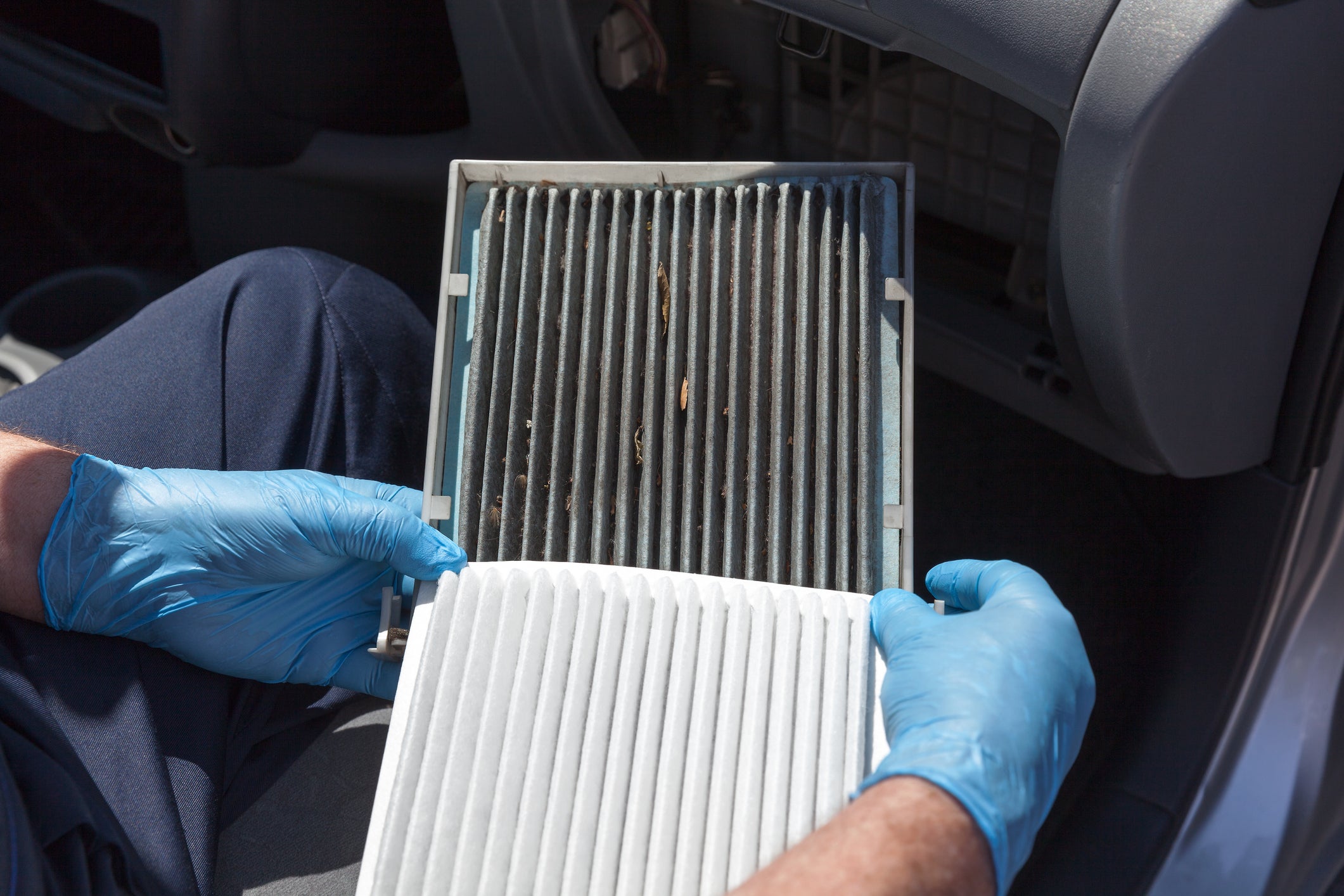Best Cabin Air Filters (Review & Buying Guide) in 2023 - The Drive

Q: Why do cars have cabin air filters?
A. Cabin air filters improve HVAC performance. If you've never replaced your factory cabin air filter, chances are that it's clogged up and your HVAC system is not supplying enough air to your car. The HVAC system may also be noisy. Consider buying a new cabin air filter to unclog your HVAC system and improve the life of its vital componentry.
They get rid of bad odors. Do you get a musty smell coming out of your ventilation system every time you turn it on? You should consider getting a cabin air filter replacement that has activated carbon or charcoal to absorb bad odors. It can improve the air quality in your car and help alleviate symptoms of motion sickness in some passengers.
Finally, they reduce allergic reactions. If you're constantly sneezing, coughing, or wheezing whenever you're on a long drive, you need a new carbon air filter to take care of those allergies. The carbon air filter will trap dust, pollen, and other allergens that may affect your health.
Q: What should I expect to pay for a cabin air filter?
A. Under $10: Most cabin air filters at this price range are good quality—the fact that they're inexpensive doesn't mean they aren't durable. You'll find some decent filters with activated carbon, charcoal, or electrostatic elements, and most are good for at least 12,000 miles.
$10 and up: This is the common price range for most cabin air filters, but the price barely shoots to more than $20 unless you're getting a pack of two or more. The filters are durable and made of high-quality materials. Just like the cheaper versions, the filters in this range come in all types including particle cabin filters with no special ingredients.
Q: What considerations should I have about cabin air filters?
A. Longevity. The average life of a cabin air filter is about one year or 12,000 miles. But that doesn't mean you can't get a quality product that pushes over that limit. Some filters have a life span of 30,000 miles, and some are strong enough to be reused once you give them a good wash.
Driving conditions. The filter you go for largely depends on your driving conditions. If you regularly drive through polluted urban environments, you need a cabin air filter that can get rid of musty odors and exhaust fumes. If you're in a rural environment and your main problem is dust, you could get a less complicated cabin filter that only filters out dust and other allergens.
Q: What are some tips for buying and using cabin air filters?
A. Clean your vents at least once a month, and more frequently during cold weather. When cold air flows through a hot engine, moisture droplets form in areas that receive little ventilation, promoting mold growth. That's how you get the musty smell coming from your HVAC system.
Remember to replace your filters at least every 15,000 miles. The longer your filters are in use, the more dirt they accumulate. Eventually, they wear out. Old filters aren't effective in preventing bad odors—they limit airflow in your vents and lead to window fogging.
When replacing an old filter, always put cardboard underneath it before sliding it out. All the dirt from the old filter will fall on the cardboard, and you'll avoid the extra work of having to clean the dirt off your ventilation system.
Q: I've noticed that the level of airflow from my ventilation system reduces with time. What could be the problem?
A. Your cabin air filters are probably full of dirt and need to be cleaned or replaced. Cabin air filters accumulate a lot of dust and dirt with time, and the airflow automatically gets blocked. Clean the filter if it's not worn out, or consider buying a new filter if your old one is falling apart.
Q: How often should I change my cabin air filter?
A. Most manufacturers recommend that you change your cabin air filter after every 15,000 miles. You should also change it when you start to notice bad odors that won't go away or insufficient airflow from your vents even after you wash the filter.
Q: I can't seem to locate my cabin air filter. Do all cars come with a factory cabin filter?
A. Most cars built after the year 2000 have a cabin air filter. Some European luxury cars from 1980 were also built with a cabin filter. An average car typically has only one, but luxury models have up to three filters. The cabin filter is located beneath the base of your vehicle's windshield or behind the glove box.
Comments
Post a Comment